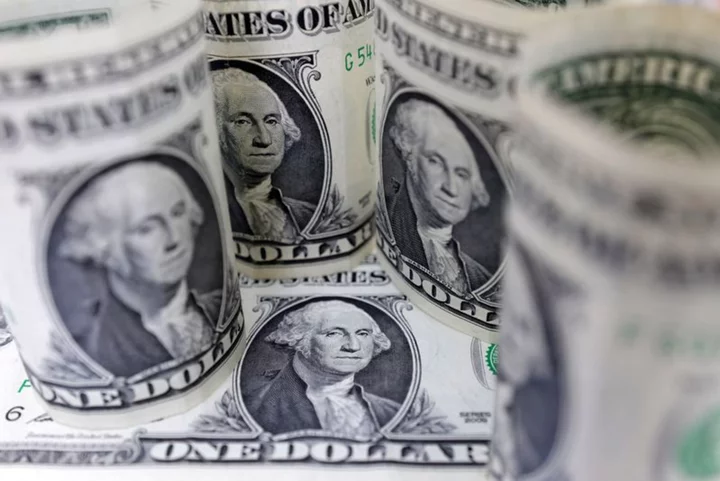By Sarupya Ganguly
BENGALURU The benchmark U.S. 10-year Treasury note yield has peaked in the current cycle, according to a majority of bond strategists polled by Reuters, although most said their conviction around that prediction was weak.
Despite yields rising over the past few months, analysts in a Reuters Sept. 5-11 poll held on to their predictions that sovereign yields will drop over the coming year, suggesting the recent sell-off in the bond market was mostly over.
A near 80% majority, or 23 of 29, who answered an additional question said yields on the 10-year note had already peaked in the current cycle. Bond prices move inversely to yields.
Roughly the same group of strategists said the same thing last month, about two weeks before the benchmark U.S. yield hit a near-16 year high of 4.37%.
Slightly more than half, or 13 of those polled, said their conviction around the forecast was weak, with the remaining 11 saying it was strong.
"There's a huge degree of uncertainty about the future of base interest rates and what inflation looks like on the other side of the current economic strength," said Guy LeBas, chief fixed income strategist at Janney Montgomery Scott.
"Until we get resolution of that, I'm not confident enough to say that we have certainly peaked for this cycle."
The median forecast for the 10-year Treasury note yield was 3.91% by end-November, a 38 basis point drop compared with 4.29% on Monday. It was forecast to decline to 3.50% in a year.
That was despite the U.S. economy showing little signs of slowing, and expectations the U.S. Federal Reserve will hold its federal funds rate higher for longer.
"Currently there are two forces fighting. In the fourth quarter, we will see a weakening job market put pressure on consumer spending, which is needed to slow growth. This driver will make yields go lower," said Zhiwei Ren, portfolio manager at Penn Mutual Asset Management.
"But asset managers' positions are very long on Treasuries already, they don't have room to buy more duration. If no one steps in to purchase the tremendous supply of Treasuries coming to the market soon, we will have a supply-demand imbalance."
This could potentially move yields higher, Ren added, a view shared by only a handful of strategists in the poll.
Much will depend on how inflation, still running well over the Fed's target of 2%, looks in coming months. U.S. CPI data, due Wednesday, are not expected to change the outlook much.
Still, the two-year Treasury yield, currently at 4.99%, was expected to decline to 4.61% in three months and 3.80% in a year, the survey showed.
The current negative spread between two-year and 10-year yields, a reliable indicator in the past for an oncoming recession, was forecast to stay largely unchanged from around 70 basis points by end-November.
"The yield curve has cruised forward through time in this weird inverted manner for over 12 months now, as rate cuts have gradually been priced further and further into the future," added LeBas.
"I suspect we will see a similar theme throughout the balance of this year and into the early part of the next, keeping the curve pretty deeply inverted through then."
Interest rate futures were now pricing in the first rate cut in the second quarter of 2024, compared to the first quarter expected a few weeks ago.
(Reporting by Sarupya Ganguly; Polling by Prerana Bhat, Purujit Arun and Rahul Trivedi; Editing by Hugh Lawson)

